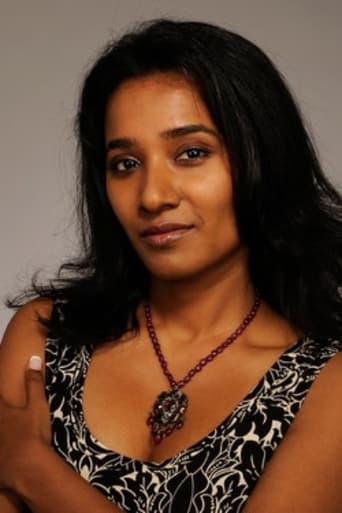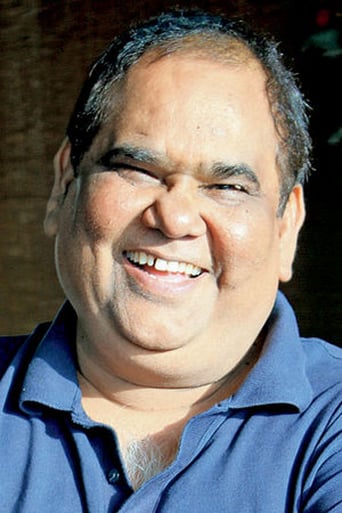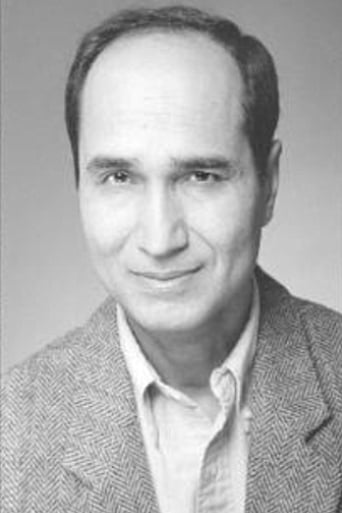EarDelightBase
Waste of Money.
GurlyIamBeach
Instant Favorite.
Livestonth
I am only giving this movie a 1 for the great cast, though I can't imagine what any of them were thinking. This movie was horrible
Murphy Howard
I enjoyed watching this film and would recommend other to give it a try , (as I am) but this movie, although enjoyable to watch due to the better than average acting fails to add anything new to its storyline that is all too familiar to these types of movies.
gradyharp
BRICK LANE is one of the more satisfying films about our remaining cultural identity crises. Based on the novel by Monica Ali and adapted for the screen by Laura Jones, this film flows through the lives of young Bangladeshi sisters - one married off to a successful older obese fellow countryman living in London and the other remaining in the family village. The story is at once sensitively private in its communication between the separated sisters whose sole communication is by letters, each longing for the other sister's advantages, and also woven into a public examination of how 'immigrants' adapt in a foreign country, absorbing all the idiosyncrasies of that new land and the altered perception of the world outside as it changes in dramatic ways. Nazeem (the radiantly beautiful Tannishtha Chatterjee) is married by arrangement to the fat successful Chanu (Satish Kaushik): the two take up residence on the Brick Lane known as London's Little Bangladesh. Nazeem is a quiet and dutiful wife (longing for her sister and her village home), bears Chanu a son (who dies a crib death) and two daughters who comfortably are absorbed into the country of England, the only home they know. The aging Chanu is intelligent but fails to hold jobs, partly because of this outspoken behavior and in part due to prejudice of his employers. Nazeem longs to return to Bangladesh, but when she is required to take in sewing to aid the falling family coffers, she meets the young and handsome Karim (Christopher Simpson). The two fall in love and Nazeem struggles with her duties and moral obligations as a wife and mother and her surfacing realization of her own identity. The Twin Tower tragedy of 9/11 occurs and the people of London turn against the Muslims: Karim is an activist and defends the rights of his fellow Bangladeshi brothers, hoping to encourage Nazeem to join him and remain in London. Nazeem struggles between passion and duty and ultimately finds her own path - becoming a complete woman individual of mature mind. And the results of her growth spell out the ending of the film. The cast is large and very fine, and the photography by Robbie Ryan captures both the childhood remembered magic of Bangladesh and the raw realism of life in London. The musical score by Jocelyn Pook enhances the changing moods of this touching and significant movie. Director Sarah Gavron has found the perfect balance to tell this story of love, family obligations, and the changes of the world events. It is a film well worth seeing multiple times. Grady Harp
reelinspiration
Everyday Nazneen scrubs her foggy window pane trying to peer out of her dingy Brick Lane flat. She longs to return to her childhood home of Bangladeshi where she and her sister ran free through the lush woods before her father forced her to marry an older man living abroad.Nazneen has been raised not to question her fate, so she does her best to fulfill her duty to her husband and family.Her husband, Chanu, (Satish Kaushik) does not come off as a stereotypical tyrant but a chubby optimist who prides himself in being a western "educated man." He has instructed his daughters to assimilate into Western culture, yet expects to be treated as undisputed ruler of the household. This irony is not lost on their teenage daughter, Shahana, who disrupts the household by challenging her father. (Naeema Begum is pitch perfect as the average "mouthy" teen.) Nasneen does her best to shield (literally) her daughter from her father's retaliation. But the girls have no role model in their submissive mother. Nasneen's only connection with the outside world is what her husband shares with her. Unfortunately, he has absolutely no insight into the needs of his wife or daughters.Nazneen finally decides to facilitate their trip back to her homeland herself by taking in sewing. The handsome young man (Christopher Simpson) who delivers the garments cracks open a window to the world. Director Sarah Gavron shows Nazneen's awakening through the subtle complexity of Tannishtha Chatterjee's performance.When 9/11 ignites racial tension in the diverse neighborhoods of Britain, Nazneen must ask herself, "What is my true home?" Nazneen finds that home is where you find your strength.Don't miss the gorgeous cinematography while it's still on the big screen. BRICK LANE is one of the best films of the summer.Movie Blessings! Jana Segal reelinspiration dot blogspot dot com
Seamus2829
Although I've never read the novel, I approached Brick Lane with the same devil may care attitude I always do for films dealing with another culture. What I got was something akin to a Southern Asian soap opera. Nazneen (the central character)had been the unwilling pawn in an arranged marriage to an older Bangladeshi man, who moved her to London's east end. What follows is several years of an unhappy marriage later, she is employed as a seamstress, and becomes involved with another man with a passion for politics. Along the way we are treated to the usual array of emotional outbursts,political leanings, and other cannon fodder that makes for a smartly photographed, but rather humdrum film that will probably be of appeal to the South West Asian community (i.e. India,Bangladesh,Sri Lanka,Pakistani).
Chris_Docker
As I started watching Brick Lane my heart soared. The beauty of its appreciation of nature (Bangladeshi scenes from the lead character's memory) reminded me of the masterpieces of Deepa Mehta if not of Satyajit Ray. It tells of a young girl whose father marries her off to an educated Bangladeshi back in London. Displaced from her homeland, her heart is full of secret sorrow until she finds herself attracted to a man younger than her husband and much closer to her own age. From that point she begins much soul searching, examining her own identity and place in the world."For us," says director Sarah Gavron, "'Brick Lane' as a title symbolises a sanctuary to successive waves of immigrants searching for home. That search, rather than the bricks and mortar of the street, is at the heart of the story." I admit that her description helps me to have a better view of the film but I wish it had been more apparent in the footage.A beautiful love story develops, with a subplot about resisting Islamic extremism. Yet I soon felt as if I were watching a kind of updated Jane Austen novel where the Brick Lane (East London) Bangladeshi community were used simply to provide a fresh plot device.I read some of the adverse comments from Brick Lane spokespeople that plagued the film's opening. I didn't feel I could relate to them. I found nothing offensive in the film. Except it seemed to me somehow a curiously British portrayal of Bangladeshis. There is plenty of reference to Bangladeshi or Muslim issues but authenticity seems a little uneven. Translation of a prayer is touching. But a reference to the Muslims that died in Partition (at the end of colonial rule) seems less heartfelt. The young daughter, who has only ever known British ways, is a very convincing character on the other hand. I am tempted to wish that the original prize-winning writer had focused her efforts more on the daughter, someone much closer to her own diaspora experience.As a film it succeeds. Exquisite photography and bundles of unarticulated emotion sweep us along at a heady pace. As a glimpse of another culture it is on less secure ground. The people claiming it misrepresented them may not have been statistically significant but why did it stir up so much trouble? Consider this. When Gurinder Chadha made Bride and Prejudice, she focused on the positive qualities of the two protagonists and cultures (India and America). When Deepa Meetha made Water, she focused on the positive strengths of the women on whose behalf the film was (in part) a protest. Sarah Gavron's heroine in Brick Lane, on the other hand, is almost an entirely a passive recipient of circumstance. We suspect she is a lovely person, but it needs more than some idyllic childhood memories of running through paddy fields to pinpoint the beauty within her. Much as the director's comment gives a higher purpose and reading to the film, it is not so obvious from viewing alone. Her comment about a sanctuary is a very spiritual one - perhaps even capable of uniting Muslims and Jews one day. But although her protagonist's husband does make reference to it at a Muslim meeting it could too easily be missed. Sadly, but not surprisingly, some audiences have reacted to the extremely personal (but more negative) images of her trapped and isolated woman.For a film with a serious intent, Brick Lane stops short at quality entertainment. Compare Mira Nair's epic The Namesake, which asks questions about identity and answers them. Or the way Satyajit Ray looks at home and identity through simple observation If Sarah Gavron had wanted to accomplish anything as grand as the search for sanctuary in a foreign land, her scope needed to be more ambitious.






